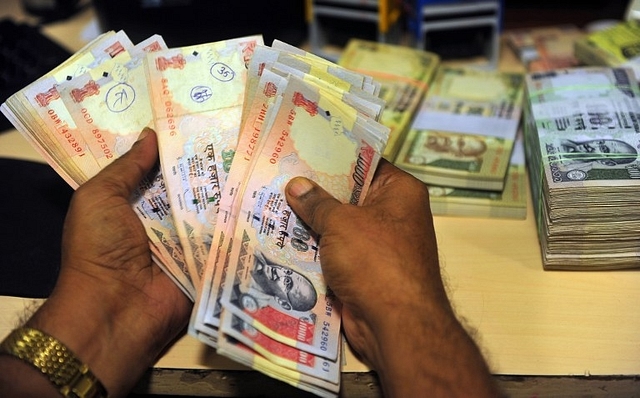
Budget 2016-17: The Dividend Distribution Tax Is A Favour To The Super-Rich; It Must Go
Warren Buffett, the iconic investor, once said that he was troubled by the fact that his secretary paid a higher rate of tax than him. This is because income from capital is treated differently from plain vanilla salary incomes.
Buffett said in 2013 to CNBC:
“Counting payroll taxes, I’ll probably be the lowest paying taxpayer in the office. My capital gains rate will go from 15 to 23 percent and a fraction….but if you look at social security tax, payroll taxes plus income taxes, I’ll be a fair amount higher, say 8 or 9 points higher. But the differential between me and the rest of the office, not just my secretary, was greater than that.”
Shouldn’t India’s rich feel the same sense of guilt? And shouldn’t a finance minister, who has anyway promised cuts in the corporate tax rate to 25 percent over four years, be helping them shed this guilt (if any) by taxing their personal incomes at a fair rate?
One target for Arun Jaitley in Budget 2016-17 should be his friend P Chidambaram’s DDT – the dividend distribution tax. The DDT is sprayed uniformly on corporate profits and finance ministers love it for the sheer simplicity through which it is collected. The DDT, instead of taxing dividends in the hands of the earner, is paid by companies or mutual funds on the gross amount of dividends paid out each year. The current dividend rate is 15 percent plus other cesses, but the actual effective rate is closer to 17 percent due to the way it now has to be calculated.
Ease of collection is an important consideration in taxation – and rightly so. If you have to spend hundreds of crores collecting a tax and then additionally have to harass taxpayers over how they have accounted for their incomes, such a tax is simply not worth the revenues it brings the exchequer.
But there is also another principle in taxation that is equally, if not more, important – the principle of progressive taxation where the rich pay at least as much as the not-so-rich, if not more. The DDT, by levelling rates for all, is fundamentally iniquitous.
Consider this example. If I am a lower middle class investor with some money in mutual funds or even shares, my tax bracket is either zero or 10 percent. But the company deducts DDT (though I don’t know it) at nearly 16-and-odd percent (just under 17 percent). I am happy because the dividend that hits into my bank account is tax-free, though the fact is the tax has been pre-deducted by the company. I am indirectly paying more tax than what the law says I should at my income level.
On the other hand, consider the better off – those paying the 20 percent and 30 percent tax rate (more, including cesses). They pay just 17 percent, well below what they would have had to if there was no DDT. DDT swats the small taxpayer more than the big ‘uns.
The best part is promoters of big companies get a clear bonanza: their companies pay the DDT (which is effectively paid by all shareholders), and they get huge dividend incomes tax-free. And this includes the cash-rich multinationals.
Consider the free earnings involved. The Tatas, according to a Business Standardstudy, earned Rs 12,000-and-odd crore in dividends in 2014-15. Wipro’s promoter Azim Premji earned Rs 2,174 crore, and Mukesh Ambani Rs 1,464 crore. Even the Sun TV promoters earned Rs 509 crore in dividends – and this is excluding the salaries they pay themselves as executives in their company.
Oracle paid out Rs 4,193 crore as tax-free dividend to its parent, and Unilever Rs 2,181 crore, says the study.
So we are not talking small sums here. Ending the subsidised lunch on DDT to rich promoters will be more than enough to finance OROP (one-rank-one-pension).
Is there a way to end this unfairness without scuttling the ease-of-collection objective?
I believe there is.
Once the DDT law is junked and dividends are added straight to taxpayer’s annual income, the rates for the rich will automatically go up. They will now pay tax at their marginal tax rate. But this change will have to be complemented by some other changes in the law to prevent a tax collection nightmare.
For example, the law on tax deduction at source (TDS) can be amended to ensure that all dividend payments to corporations and promoters are taxed at the top rate.
Alternatively, or even additionally, all dividend payments above, say, a reasonable limit of Rs 1 lakh per annum per taxpayer per company or per mutual fund, can face TDS of 30 percent. If taxpayers are in brackets below the amount of tax deducted, they can claim refund through their normal IT returns.
But, one may ask, will this not force companies making losses to pay more tax when dividends from subsidiaries are a key source of income? Or adversely affect senior citizens earning incomes only from investments?
Not quite. The liberal limits are per company – and hence if you divide your investments across several funds or shares, you will be protected.
Moreover, we should worry least about companies and promoters. They can set off dividend incomes against losses and claim the refunds – and they are well equipped with armies of chartered accountants to get their money back from the taxman. The pain is far lower for corporations and promoters who have the resources to plan their cash flows better than with the ordinary taxpayer.
So, Mr Jaitley, Budget 2016-17 is the right time to abolish the DDT. It is toxic to the idea of taxpayer equity. It favours the rich and discriminates against the lower middles classes.